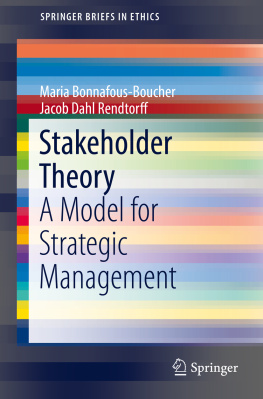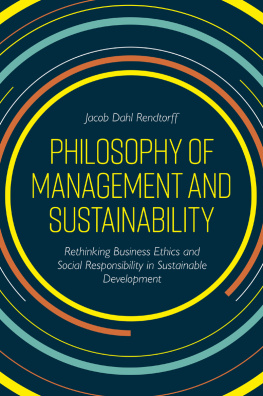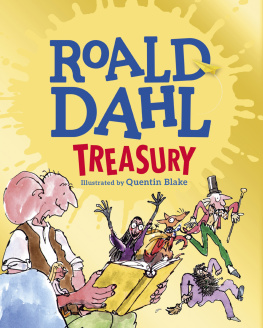1. From The Stakeholder to Stakeholder Theory
Definitions
The term stakeholder (partie prenante in French) is used in different ways by specialists and members of the public. For the wider public, it is a generic term, equivalent to citizen, to anyone taking part in public life. For specialists, it refers to people who are not shareholders. In fact, partie prenante is an imperfect translation of the English stakeholder , literally the holder of a stake. Less literally, stakeholder means he, or she, who has a stake in something. More broadly, it means someone who participates or takes part in something (prendre partie, hence partie prenante). In English, the term stakeholder is a neologism which plays on the term stockholder (designating those who share the profits, including the shareholders). The term indicates that parties other than stockholders can have a say and that their stakes and interests in the activities of the firm should be recognized (Freeman and Reed ), the notion of the stakeholder is seen as reciprocal relationship in which a stakeholder is a group which depends on the firm in order to achieve its own objectives and on which the firm depends for its survival.
Officially, the term stakeholder was first used in public at a conference held at the Stanford Research Institute in 1963 to refer to all groups on which an organization is dependent for its survival. But it was only 20 years later that the term stakeholder was popularized by Freeman () who, at that time, used it to mean: an individual or group of individuals which can affect or be affected by the achievement of organizational objectives. Only those who cannot affect (due to an incapacity to do so) and those who are not affected by the actions of an organization (due to the absence of any form of relationship) are excluded from this definition. It should also be noted that a stakeholder can be affected by the corporation without being able to affect it in turn (and vice-versa). Potentially, and alternatively, it can contribute to or threaten the organization.
In the final analysis, while the term stakeholder is closely associated with the private sector and the corporate world, it is also revealing in terms of the relationship between the business world and public life: it illustrates the difficulty of dissociating various interests, since the environment within which corporations act is not only economic and legal, but also social, political, cultural and ecological. In fact, the term stakeholder has crossed the borders of corporate governance and is now frequently used by political analysts, as evidenced by the White Book on European governance (Candela ). Nevertheless, the decision-making processes of national public organizations (states, public authorities), regional public organizations (the European Union), and para-public organizations (associations, international NGOs) has little to do with the corporate governance model.
Consequently, it is difficult to determine a priori who is a stakeholder and who or what is not. It depends on a concrete analysis of the precise situation in which an organization or, more specifically, a corporation, finds itself. Whether in public debates or in debates on corporate management, the notion of the stakeholder is generally associated with that of the actor concerned with a decision or a project. It seems to complement the notions of the historical social actor (Bourdieu), the strategic actor (Crozier), the identity-creating actor (Sainsaulieu), the group actor (Kaes, Anzieu), and the impulse actor (Enriquez), a family of concepts traversing many of the social sciences. Stakeholders are constantly implicated in collective, public action in terms of both analysis and practice. It is as if, in order to govern, or quite simply to win agreement to a reform, it is sufficient to be aware of the interests and influence of various groups. Thus, in a neo-liberal context, integrating stakeholders into an action framework takes the form of a pertinent, actionable theory (Audier ). But who or what is a stakeholder and who isnt? If everything, either in an absolute or relative manner, is a stakeholder, is the fact of acting tantamount merely to establishing degrees of engagement or disengagement? In many regards, stakeholder theory bears witness to a desire for change in approaches to governance, decision-making, acting, feeling or wanting to be part of a project. It reflects a shared aspiration to participate; it highlights the questionable nature of the distinction between those who have rights and those who do not. It takes into account the blind spot constituted by those who do not express an opinion. That is why, although it undeniably derives from management studies, it can also be regarded as a theory critical of neo-liberalism.
In a well known article, Mitchell et al. ().
Table 1.1
What is a stakeholder? A chronology
Source | Stake |
|---|
Stanford memo () | those groups without whose support the organization would cease to exist (cited in Freeman and Reed ) |
Rhenman (1964) | are depending on the firm in order to achieve their personal goals and on whom the firm is depending for its existence |
Ahlstedt and Jahnukainen () | driven by their own interests and goals are participants in a firm, and thus depending on it and whom for its sake the firm is depending (cited in Nsi ) |
Freeman and Reed (: 91) | Wide: can affect the achievement of an organizations objectives or who is affected by the achievement of an organizations objectives |
Narrow: on which the organization is dependent for its continued survival |
Freeman (: 46) | can affect or is affected by the achievement of the organizations objectives |
Freeman and Gilbert (: 397) | can affect or is affected by a business |
Cornell and Shapiro (: 5) | claimants who have contacts |
Evan and Freeman (: 7576) | have a stake in or claim on the firm |
Evan and Freeman (: 79) | benefit or are harmed by, and whose rights are violated or respected by, corporate actions |
Bowie (: 112, Note 2) | without whose support the organization would cease to exist |
Alkhafaji (: 36) | groups to whom the corporation is responsible |
Carroll (: 57) | asserts to have one or more of these kinds of stakes ranging from an interest to a right (legal or moral) to ownership or legal title to the companys assets or property |
Evan and Freeman () | contract holders |
Thomson et al . (: 209) | In relationship with an organization |
Savage et al . (: 61) | have an interest in the actions of an organization and the ability to influence it |
Hill and Jones (: 133) | constituents who have a legitimate claim on the firm established through the existence of an exchange relationship who supply the firm with critical resources (contributions) and in exchange each expects its interests to be satisfied (by inducements) |










